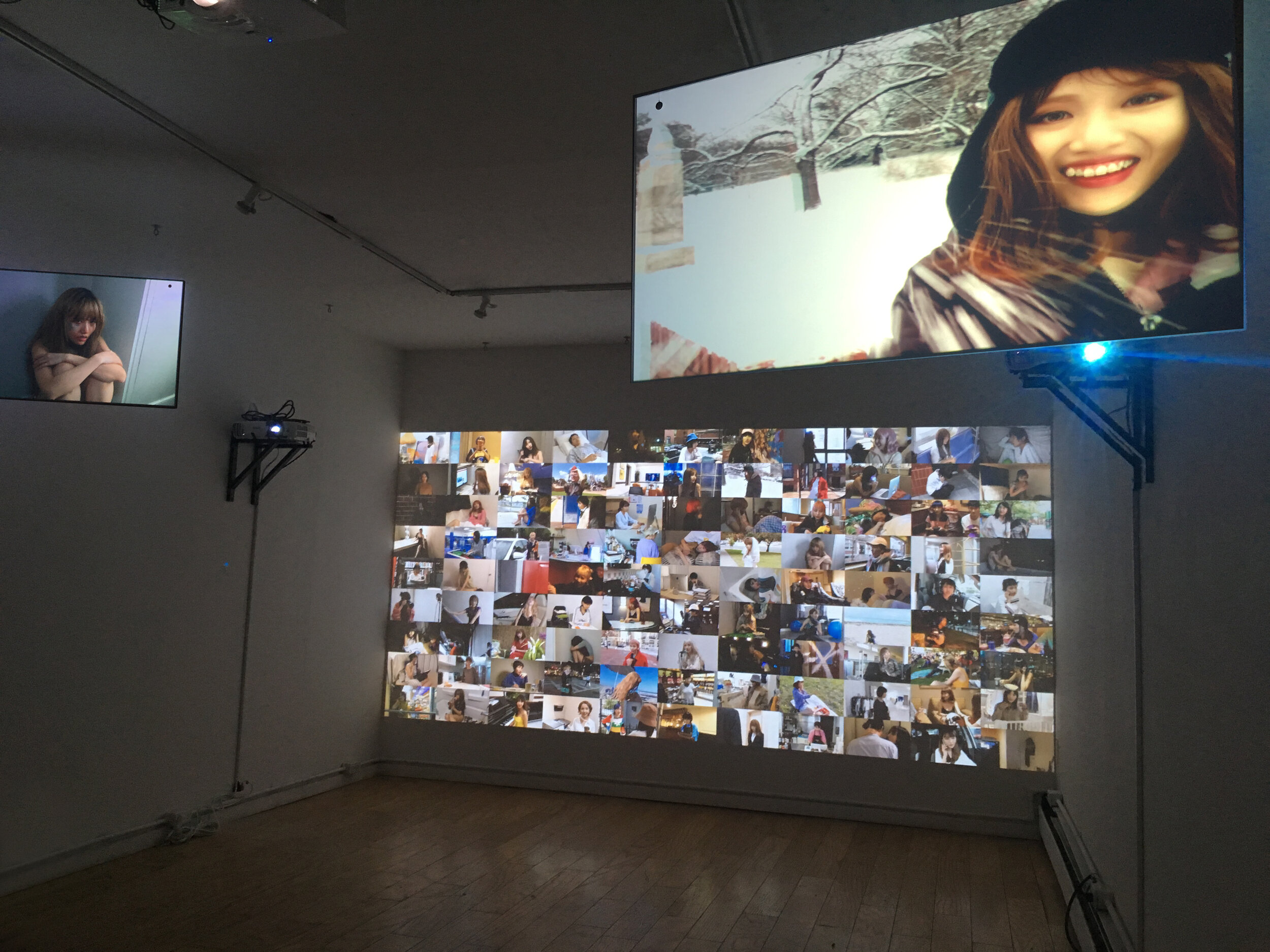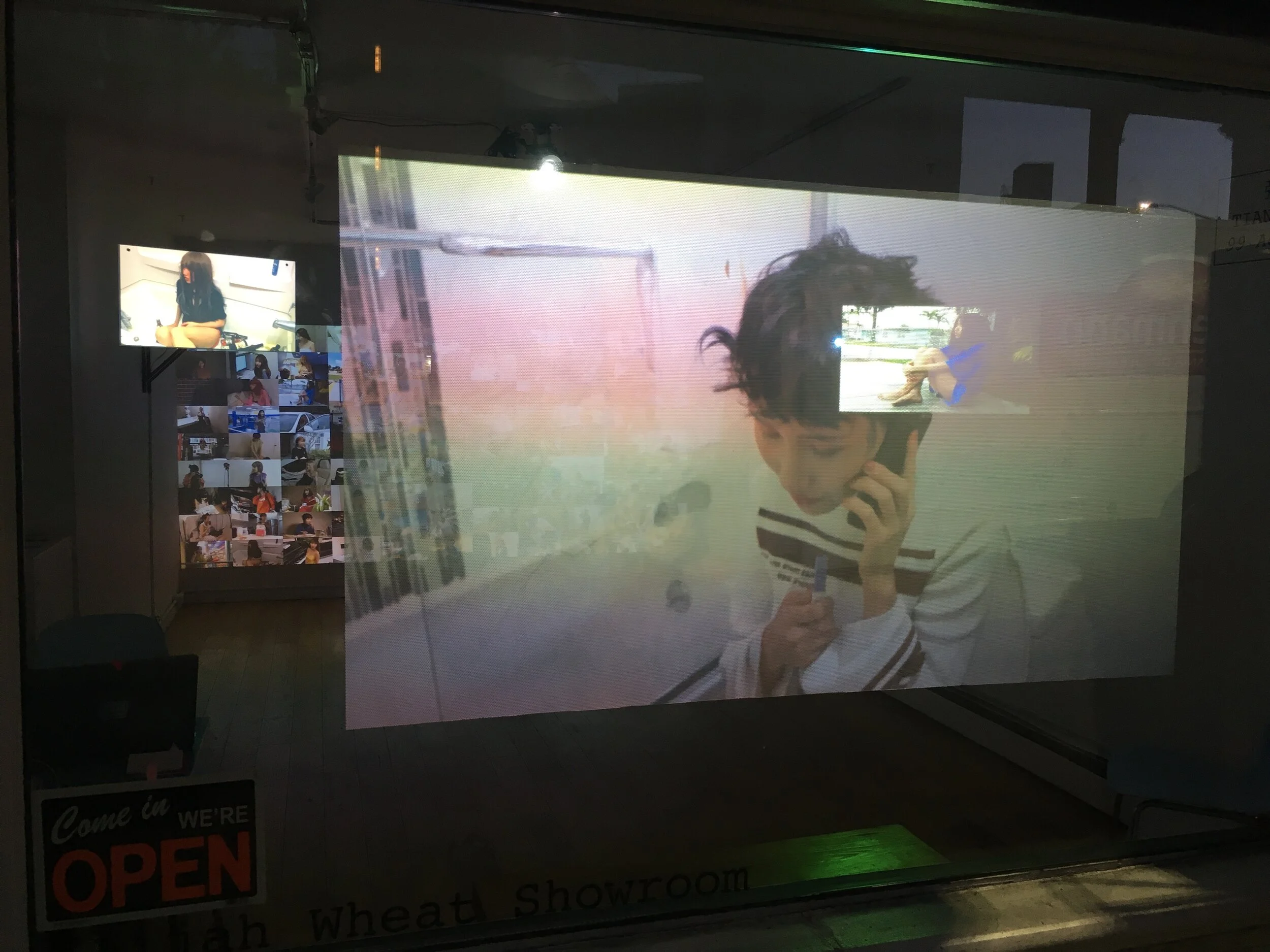"99 Agreements" introducing Tianyi Zhang 張天譯
“99 Agreements” introducing Tianyi Zhang
As the dark begins to fall into winter, Elijah Wheat Showroom is thrilled to introduce a new voice in performance-based video installation with a titillating exhibition by Chinese artist, Tianyi Zhang. The exhibition will be presenting the work entitled “99 Agreements” opening on November 9th from 6PM-9PM and running regular hours through December 15, 2019~~by appt until January 6, 2020.
“Yes” in Zhang’s native language of Mandarin can have up to eight different characters, pronunciations and meanings. Each a nuanced form of agreement and with its own properties of affirmation. The English language’s term may confirm a direct question’s validity, however, there are also variations to a simple agreement: “Yup,” “Yea,” “Uh-huh,” “Okay,” “Sure,” “All right,” “Right,” “Totally,” “Of course,” “Certainly,” “Sure,” “Indeed,” etc. are all appropriate when something or someone requires approval. Although less direct , the above terms are acceptable yet display a subtle conjecture if intoned a particular way.
Throughout Zhang’s work, she explores patterns of behavior and communication in our current over-saturated media and social environment. She creates interactive performances where simple habitual gestures are emphasized to explore cultural pressures, expectations, and identity.
“Yes” in the 99 Agreements are enacted with 99 different female characters, all in settings where they perform different roles, tasks and various occasions. Ambitiously recording herself in as many roles, Zhang presents in a high-femme category reminiscent of unsolicited objectification of the damsel in noir films. Zhang notes that “Some are talking to others pleasurably, some are muttering by themselves nervously, some are helpless and in pain.” Yet, when combined, the sonic environment progresses in a “full spectrum of emotion” Zhang explains.
The multi-channel video with the continuous loop of “Yes” becomes a vacillating wave of confirmation——of what, we have only the settings and performance to determine. With remarkable accuracy, Zhang pulls the viewer into a trance of multiplicity. The artist remarks that:
People are accustomed to a stereotyped lifestyle, repetitive action, and habitual language. Our reactions to the outside world are often mindless. “Yes," not only expresses agreement, but also nuanced emotion, providing multiple meanings through a meaningless oral habit. “Yes” is used cheaply and understood simply in daily communication, its ambiguous implications always overlooked. Behind the simple language may be habitual harmony, may be the consent to authority, or may also refer to absolute resistance.
The artist asks female identifying participants specifically: How do you interpret the multiple implications of your repetitious confirmations in regards to your career? Keeping in mind the perpetuating inequalities in the work place where women are kept in middle-management positions and asked to do more work, especially when superiors notice their productivity. Likely women are asked to be ‘less aggressive and more assertive’ if their tone is at all defensive or encouraging equality. How often does a “Yes” reply grate the soul when it compromises one’s integrity, yet it is required for the position? Why is it easier to say “Yes” when given an offer, yet it is well below the value of the work a woman is earning compared to men. Tianyi Zhang is creating work for all, while encouraging women to empower themselves in their career. Let us say a “Yes, and…” to counter the inequitable offer, ask for a raise, project our strengths and integrity.
Compliance is easier, yes. Defiance is bitchier, yes.










